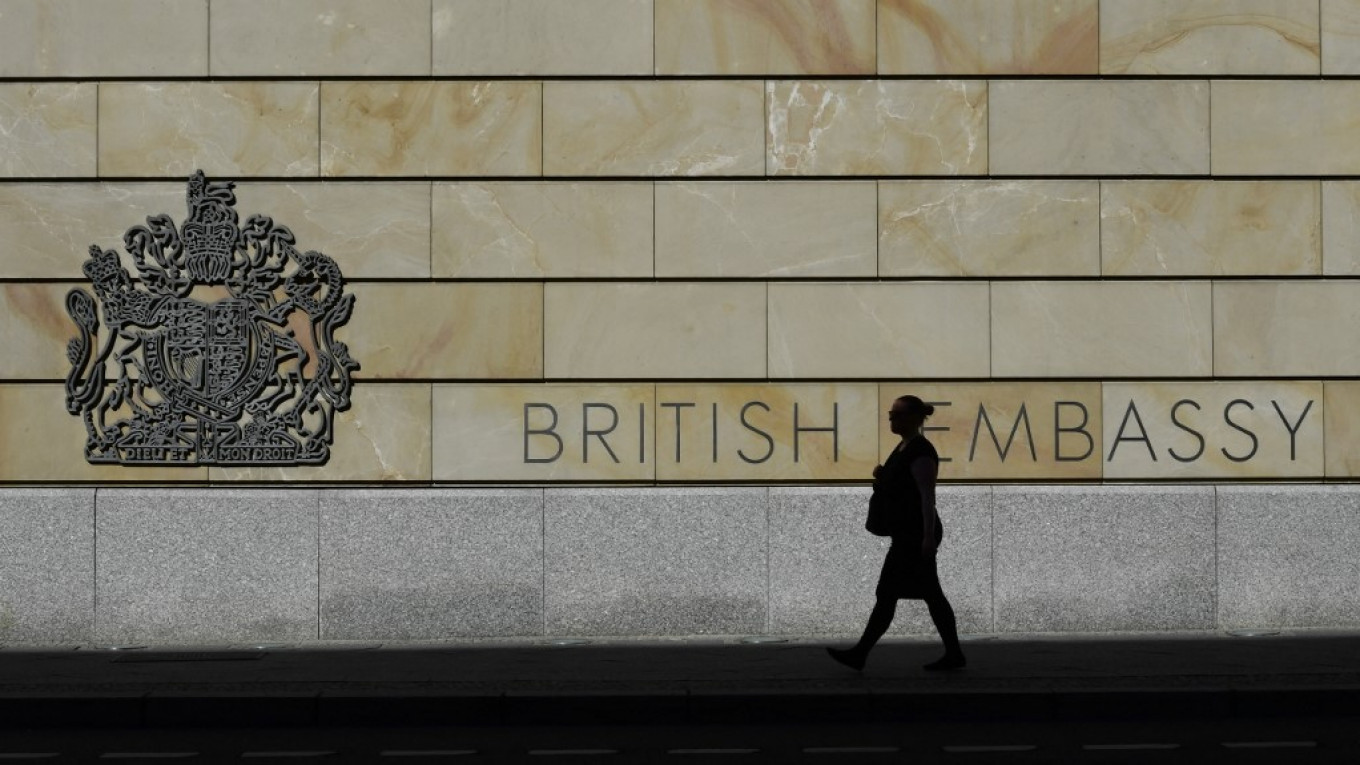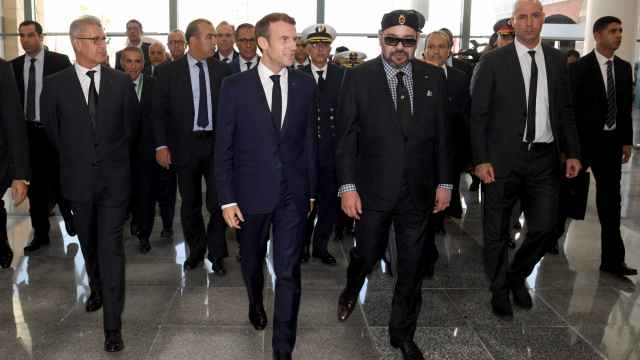Bit by bit, more news is emerging about David Smith, the employee at Britain’s Berlin embassy accused of being a spy for Russia.
This is not, frankly, a major case, but it is a useful reminder of the realities of the modern intelligence war — and a perverse advantage Moscow sometimes has in recruiting sources in the West.
However exciting the life may seem, a human intelligence case officer’s job is much more about recruiting and handling bit part actors in the espionage drama rather than the kind of high-level moles and defectors of which stellar careers and often-mediocre films are made.
By all accounts a contract security guard with a background in the Royal Air Force and an unassuming manner, Smith did not have access to serious classified material. That would not have made him useless from his handler’s point of view: even day-to-day gossip and the minutiae of embassy layout and routine has value. Besides, the handler has a job to do and will be assessed based on how many agents he or she can recruit and retain and how many reports get filed back to Moscow.
It is not the case that the quality is irrelevant — but then again, quantity has a quality all its own, especially in a bureaucracy.
The case officer is doing a job. What might Smith have got from taking such an obvious risk?
MICE and Mr Smith
The CIA have an acronym, MICE, for the main reasons people are recruited as agents: money, ideology, coercion and ego.
Coercion is never a good case officer’s preferred tool: an eager, willing source is typically safer and more productive. That leaves money and ego, two hardy perennials.
Certainly it appears that Smith was being paid for his troubles — though interestingly enough, the sums paid are rarely especially great. One study of such payments found that around two-thirds of all Americans caught spying since 1975 were paid in total less than $12,000 in 2018 dollars.
For many, the reason is that the money is often little more than a token. The real joy, especially for those who feel the world has passed them by or failed to appreciate their true talents, is that delicious feeling of having a secret, of fooling everyone around you. (Until, of course, you’re caught.)
It does not feel like a huge assumption to wonder whether Smith, the 57-year-old former RAF junior airman with a small flat in Potsdam, a failed marriage, and an ageing Ford Fiesta, might have enjoyed the sense of excitement, the feeling at least someone appreciated his talents. A good case officer, after all, is a skilled field psychologist, who will seek to play on a potential source’s discontents, insecurities and frustrations.
What about ideology? To be sure, today there is no more Manichean clash of worldviews as during the Cold War (those who see the current dispute between Russia and the West as one of authoritarianism versus democracy are caricaturing both sides). That said, there is a host of smaller ideological fracture lines, around everything from social conservatism to American exceptionalism.
Until there is a trial we don’t know if Smith is actually guilty, and we will also be working off the usual mix of factual reporting, careful official spin and outright fancy. Nonetheless, at this stage, there seem to be some suggestions also of an ideological affiliation.
Contrarian Geopolitics
There are the photographs of his bookshelves, piled with military histories, books in Russian, and militaria from the Russian Fleets and even pre-Euromaidan Ukraine’s infamous Berkut riot police.
There is the Russian flag, and the Border Guard cap on a toy dog. (In fairness, I suspect that from some angles pictures of my home could be interpreted as signs of problematic sympathies.)
Nonetheless, even if one dismisses the rather desperate interpretation that the RU 1801 on his car number plate was an homage to the coronation of Tsar Alexander I, there do seem to be grounds to suggest that Smith — married to a Ukrainian for twenty years — did seem to have a particular fascination with Russia.
And here is one of the new ideologies of the day. Call it ‘Russophilia,’ call it contrarian geopolitics, but there are more than a few in the West who see something genuinely admirable in Russia — or at the very least something unjust in how it is treated. For some, it is as a country willing to fight for what it believes in, for others a bastion of social conservatism.
Often, it is less about Russia as it is, and more as Russia as a symbol of not being whatever it is they don’t like about the modern West.
If Smith was indeed motivated by such dissatisfactions, then the case is also a useful reminder that lazy assumptions that only fools, mercenaries and sociopaths would find anything in Russia deserving of their loyalty are dangerous. We may not be able to comprehend or condone those who feel Russia is the victim of an arrogant, degenerate West, but they exist, and Moscow will do what it can to make full use of them.
A Message from The Moscow Times:
Dear readers,
We are facing unprecedented challenges. Russia's Prosecutor General's Office has designated The Moscow Times as an "undesirable" organization, criminalizing our work and putting our staff at risk of prosecution. This follows our earlier unjust labeling as a "foreign agent."
These actions are direct attempts to silence independent journalism in Russia. The authorities claim our work "discredits the decisions of the Russian leadership." We see things differently: we strive to provide accurate, unbiased reporting on Russia.
We, the journalists of The Moscow Times, refuse to be silenced. But to continue our work, we need your help.
Your support, no matter how small, makes a world of difference. If you can, please support us monthly starting from just $2. It's quick to set up, and every contribution makes a significant impact.
By supporting The Moscow Times, you're defending open, independent journalism in the face of repression. Thank you for standing with us.
Remind me later.








